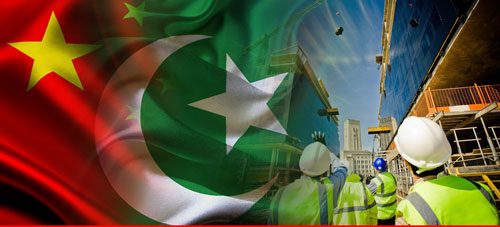Dr Nasreen Akhtar
ALICE Wells, the US Acting Secretary for the Bureau of South and Central Asia Affairs, recently completed her visit to Islamabad. During her visit, she criticised over $60 billion Pak-China Economic Corridor (CPEC). Several firms blacklisted by the World Bank have received contracts in CPEC, Alice Wells claimed. She further criticised that “the lack of transparency in the CPEC deal and the conditions imposed by China are increasing Pakistan’s debt”. This criticism is not new on CPEC. Last year Wells said, “The Chinese loans are going to hand over Pakistan’s economic development potential, hamstringing Imran Khan’s reform agenda”. Mike Pompeo, the US Secretary of State, also warned Pakistan that IMF’s money for Pakistan should not be used to return CPEC debt”. The fundamental question arises that why has CPEC become irritant to the US Administration? The answer is not complex; it is so simple:
In fact, CPEC has increased the US’ concerns because both China and Pakistan will benefit- economically and strategically. CPEC has put the two countries, China-Pakistan, on a permanent course, and the direction would help them to surpass their economy and possible potential. However, CPEC would certainly influence the “Rising India” that is not in the interest of the US because CPEC is an extension of BRI (Belt Road Initiative) that was launched by China in 2013. BRI includes more than 152 countries and China is heavily investing in infrastructure development in these countries. CPEC, therefore, is massively achieving its objectives. The first phase of the CPEC has already been completed [infrastructure], now it has entered in its 2nd phase-economic zones are taking off- that will measure the economic development, particularly of Pakistan. Ask the people who are using Motorways (M4-M5), they will give their feedback that how this (road infrastructure) has made their extensive journey so easy and comfortable. In South Punjab M5 (Motorway) is known as CPEC, and the people appreciate China’s investment in Pakistan.
CPEC is not only a project that has developed cooperation and trust between the two old friends, but also it has constructed the bridge between the people of China and Pakistan that may lead them (only) toward progress. CPEC, undoubtedly, would change the fate of people of Pakistan. The US criticism comes because China is attaining its longstanding global goals. China has responded promptly on Wells’s statement. The Chinese Foreign Ministry spokesperson, Geng Shaung, categorically said that “the American diplomats’ remarks were nothing new and were a mere repetition of old slanders against China, CPEC and the BRI..” The spokesperson rejected the US allegations and aptly said, “In advancing CPEC development, Beijing is committed to consulting and cooperating for shared benefits and China has put the interest of Pakistani people first. Washington was in ‘total disregard of facts, the US had been talking about fabricated ‘debt issue’ with the true aim to disrupt CPEC development and sow discord in China-Pakistan. It is neither healthy nor honourable to prevent others from delivering what one fails too.” Pakistan’s Foreign Office also commented on the Wells’s statement that “CPEC is a transformational project for Pakistan, and completing it is the government’s highest priority”.
The US’ criticism and concern are understandable at the State level, whereas, people are not interested to listen any State that is not doing anything for them. The US officials claim to have the regards for Pakistan as a ‘sovereign’ State but they expect Pakistan to accept their demands or policies. The US must accept both China and Pakistan as sovereign and independent states and also should respect them. China-Pakistan relations are not new – relations were developed during the Cold War era, since then, both are enjoying very cordial and cooperative friendship. Likewise, Pak-US relations were developed and strengthened in the 1950s – Pakistan signed security alliances with the US, consequently, Pakistan would not establish its tie with the {erstwhile} Soviet Union – the US rival. Pakistan depended heavily on the US economic and military assistance for its security and survival; but the US, every time left Pakistan alone to suffer during acute crises when Pakistan needed its help. It was China that provided material and diplomatic support to Pakistan in 1965-71 India-imposed wars. The US, despite its commitment, refused to provide military and economic assistance. Now the state and society both have realized that the US always backed out from a commitment whenever Pakistan needed its help. To the people of Pakistan, China is the most reliable and ‘all whether friend’. It stands by Pakistan during crisis – never disappointed or threatened state or society of Pakistani think China is a more rational state and has learned how to live with international community with ‘peace and harmony’. The US’s policy to contain China may not work – in the post-Cold War era-every state is struggling to protect its security. The policy of Development and Peace would help the US to be influenced vis-à-vis China – not the policy of conflict or containment.
The writer is Assistant Professor at IIUI.









